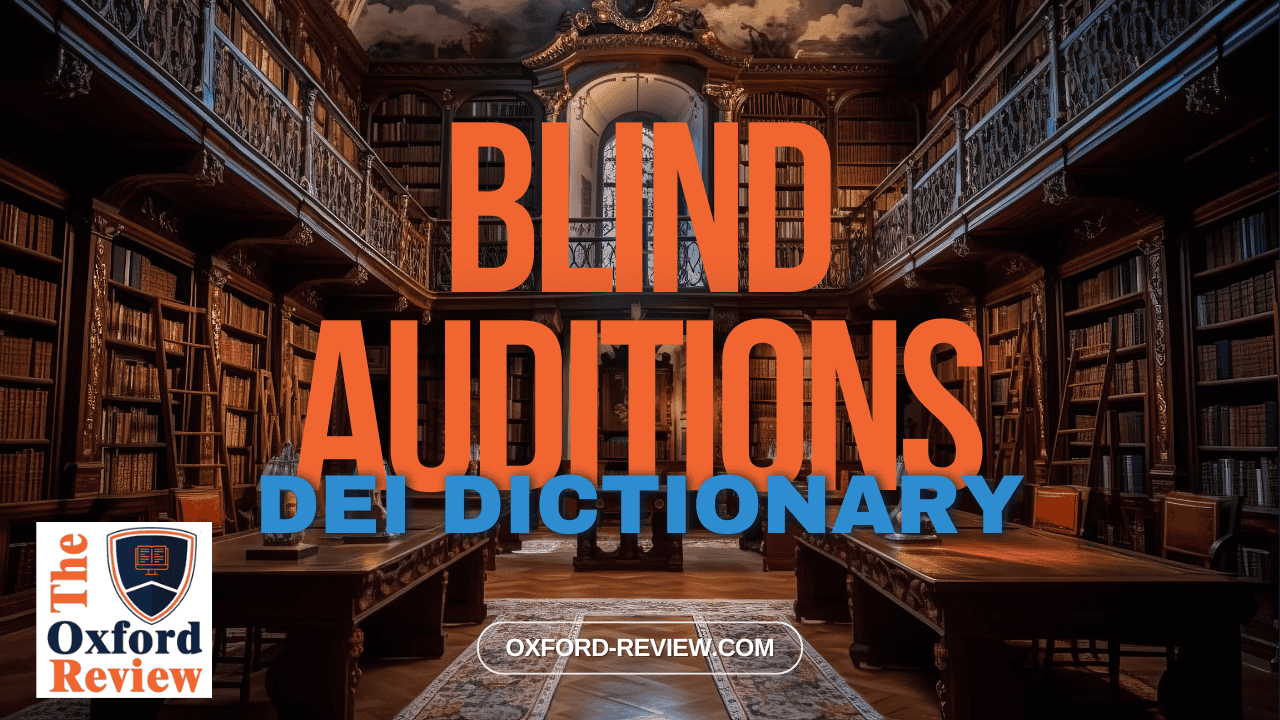Blind Auditions – Definition and Explanation

Blind Auditions: Unveiling Talent Beyond Bias
Blind auditions, a cornerstone in fostering diversity, equity, and inclusion (DEI) in various industries, particularly in the realm of performing arts, are transformative processes aimed at mitigating biases and promoting fair selection based solely on merit.
Definition:
Blind auditions refer to a method of evaluating candidates for a role or opportunity where the decision-makers are unaware of the auditionee’s identity, background, or any potentially bias-inducing information. This process typically involves concealing identifying details such as name, gender, race, or any other personal information that could sway judgments. Instead, the focus is solely on the individual’s skills, abilities, and suitability for the role.
Significance:
Blind auditions play a pivotal role in DEI initiatives by levelling the playing field and providing equal opportunities for all candidates, irrespective of their demographic characteristics. By removing biases from the evaluation process, blind auditions enable organisations to tap into a broader talent pool and unearth hidden gems that might have been overlooked otherwise.
Example:
One notable example of the effectiveness of blind auditions comes from the classical music industry in the UK. Historically dominated by male musicians, many prestigious orchestras faced criticism for their lack of gender diversity. However, by implementing blind auditions, where musicians perform behind a screen, concealing their identity from the judging panel, orchestras have witnessed a remarkable shift.
The BBC Symphony Orchestra, for instance, reported a significant increase in the number of female musicians hired after adopting blind auditions. This shift not only enhanced gender diversity within the orchestra but also enriched the musical landscape by embracing talent irrespective of gender.
Conclusion:
Blind auditions represent a powerful tool in dismantling systemic biases and promoting inclusivity across various domains. By focusing solely on merit and competence, organisations can unlock untapped potential, foster diversity, and create environments where individuals thrive based on their abilities, not on preconceived notions or stereotypes. Embracing blind auditions is not just a step towards DEI; it’s a stride towards a more equitable and vibrant future.
References:
Goldin, C., & Rouse, C. (2000). Orchestrating impartiality: The impact of “blind” auditions on female musicians. American economic review, 90(4), 715-741. https://www.aeaweb.org/articles?id=10.1257%2Faer.90.4.715&source=post_page—–deda93
Droege, J. (2019). First impression biases in the performing arts: Taste-based discrimination and the value of blind auditioning. Journal of Cultural Economics, 1-47. https://link.springer.com/article/10.1007/s10824-021-09428-1
Droege, J. (2020). First impression biases and the value of blind auditioning (Doctoral dissertation, University of Oxford). https://ora.ox.ac.uk/objects/uuid:a29856bb-a377-464c-8712-9298434f427b
Worathumrong, S. (2020). A Study on Compliments in Thai: A Case of the Blind Auditions” The Voice Senior Thailand Season 1″. Journal of Pan-Pacific Association of Applied Linguistics, 24(2), 37-68. https://eric.ed.gov/?id=EJ1281496
Be impressively well informed

Get the very latest research intelligence briefings, video research briefings, infographics and more sent direct to you as they are published
Be the most impressively well-informed and up-to-date person around...
